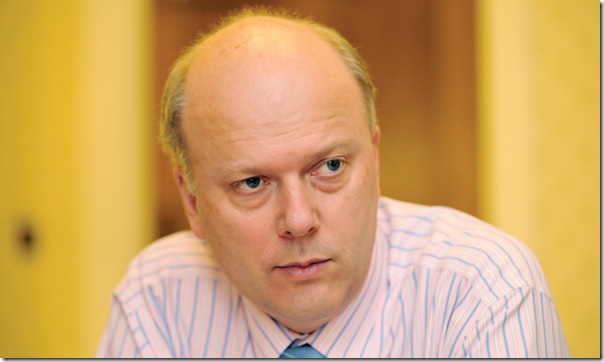Chris Grayling interview: on the shadow home front
Ryan Jennings hears Shadow Home Secretary Chris Grayling’s views on bringing Northern Ireland into the mainstream and the possibility of having a Cabinet minister from the province.
With a few negative words for the DUP and some positive on the New Force, Shadow Home Secretary Chris Grayling gave agendaNi perhaps his most open assessment of why the pact came about: “Northern Ireland can help get rid of Gordon Brown.”
In Belfast to speak to Conservative and Unionist members, Grayling was not here to talk specifically about his party’s plans for the Home Office.
He called the DUP’s siding with the Government over the 42-day detention a “shameful contribution to UK politics”, saying that the party’s sole purpose at a national level has been to hold the UK Government to ransom and sell themselves to the highest bidder.
Jeffrey Donaldson released a statement after Grayling’s speech asking the shadow if he had forgotten that the UUP’s sole MP, Sylvia Hermon, had also voted in favour of 42 day detention.
Should the Tories be elected as a new government before June, Grayling said that “Conservatives and Unionists are going to end Northern Ireland’s semidetached status from UK politics”.
He told the audience that ending the “scandal” that is double-jobbing by both the DUP and Sinn Féin was a priority for the Tories.
The UUP currently has only one MP in Sylvia Hermon and while she is solely an MP, that is because the party was unable to return any others.
In the 2005 election, 11 sitting UUP MLAs also stood for election to Westminster. A UUP source has told agendaNi that should all or any of the above candidates have been elected, they would not have stood for re-election to the Assembly in 2007.
That would mean that both the present health and employment ministers would not have had a role on the hill.
The New Force are at liberty to criticise but it is entirely possible, if they had not had as poor a showing as they did, that they could be in the same position as other ‘double-jobbing’ parties.
Asked if there truly is a place for full-time Northern Ireland MPs in light of the already large devolved remit, plus what could leave the confines of Westminster in the New Year, Grayling points to another devolved region. Scotland, he says, has very extensive devolved powers which could well be added to, and yet it still returns 58 full-time MPs from its 59.
Even if policing and justice makes the journey north west, Westminster will still retain tax, pensions, broadcasting, defence and borders and immigration, among others.
“It is absolutely right that there should be people from Northern Ireland debating and discussing those issues. The truth is that we now see very little of the Northern Ireland MPs at Westminster – when you get an important debate, the Northern Ireland voice is not really heard,” he told agendaNi.
Northern Ireland can have a difference, but for the shadow, it should have a difference. The province, in his view, has been caught up so long in green and blue politics to the extent that it has not been able to have a voice nationally – though the DUP would counter that, pointing the 42 day detention vote.
“We ought to bring mainstream politics to Northern Ireland. We should enable Northern Ireland politicians to be part of national government on behalf of the whole of the UK,” he says. For him that means a Conservative and Unionist party fighting all seats in the province.
As a party, they aren’t getting complacent and he admits to believing it will be a “tight result [and] we’re going to have to climb a big mountain to get there”.
To do that, the party has to win 117 seats to get an overall majority which, he volunteers, is more than they have done at any stage since 1931. Overall, though, the party is “cautiously optimistic”. At the time of the interview, the polls showed a levelling in support for the main parties.
The new year will, however, see the opposition turn up the heat on the Government. The bottom line, he says, is: “Britain desperately needs change and it’s our job to deliver it and not let people down”.
Touching on the Home Office brief, he says his party’s proposal for a Border Protection Service (agendaNi, issue 24 page 60), would not have a role over the border between Northern Ireland and the Republic. That, he says, should remain a matter for both the gardaí and PSNI.
“The purpose of the border police,” he says, “is to strengthen our defences against international organised crime and in particular against the drug trade and flow of people.” He intends it to apply to all air and seaports with a window into the UK. Northern Ireland and Republic would remain part of the Common Travel Area (CTA), which the Tories fought to keep in the House of Lords in February last year.






